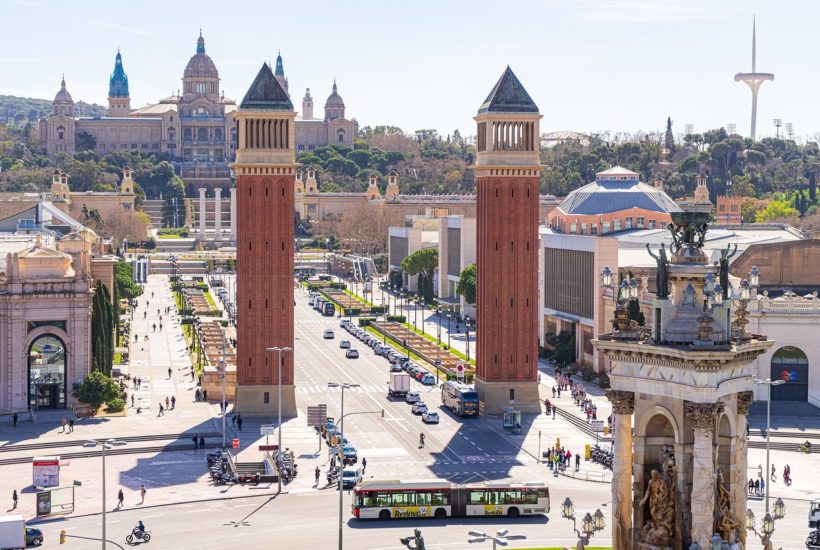Cannabis
Are Cannabis Social Clubs in Barcelona on the Verge of Closure
According to a Barcelona City Hall press spokesperson, all social clubs were first notified of the new situation – followed by security and inspection campaigns. It is still unclear how decisions will be made in specific individual cases. The inspections initially took place in clubs that are particularly focused on tourism and mass sales, but after that all other associations will be investigated.

A court ruling by the Supreme Court of Catalonia could spell the end for cannabis social clubs. Since the ruling came into force, Catalan associations are not allowed to promote the consumption, sale, or cultivation of cannabis. There is confusion as to what is meant by promotion. While the municipal government believes that the clubs should only be allowed to remain open as meeting places, some operators see it rather less narrowly:
“What happens in a cannabis club is not promotion, but rather an economic contribution by the members in exchange for a service,” said Eric Asensio, spokesman for CatFAC – an association of Catalan cannabis social clubs (Federación de Asociaciones de usuarias de Cannabis).
Read more about the cannabis social clubs in Barcelona and find the latest cannabis news in the world with the Hemp.im mobile app.
Barcelona’s cannabis social clubs are unprotected and helpless
According to a Barcelona City Hall press spokesperson, all social clubs were first notified of the new situation – followed by security and inspection campaigns. It is still unclear how decisions will be made in specific individual cases. The inspections initially took place in clubs that are particularly focused on tourism and mass sales, but after that, all other associations will be investigated.
However, the non-profit clubs that do not accept tourists also assume that they will soon be affected by closures. The hanging of those affected marks a step backwards that benefits no one and leaves the clubs unprotected and helpless. The unclear future is underlined by the contrast between Barcelona’s left-wing progressive city government under Ada Colau – which is not opposed to cannabis use in principle – and the binding decision of the Supreme Court, which must now be implemented.
Self-organized cannabis users vs. organized crime
However, the will for state control does not come by accident. There are major differences between the various cannabis social clubs.
On the one hand, there are the asociaciónes, which are more or less non-profit meeting centers for cannabis users. Membership is usually only open to local residents who can present a member of the club as an advocate. The dispensing quantity is usually limited there. The Confederación de Federaciones de Asociaciones Cannábicas (ConFAC) suggests three grams per day.
Some associations deviated from this model in recent years and liberalized their admission criteria. Day visitors could now also become members, and the admission fee was charged directly with the first purchase – not unlike a Dutch-style coffeeshop. In addition, some of the clubs are now only to serve as front stores, selling – and also exporting – cannabis grown by mafia structures on a large scale.
The unclear legal situation – El Pais speaks of the legal labyrinth of the social clubs – hardly distinguishes between the non-profit association of consumers on the one hand, who want to buy clean cannabis at reasonable prices, and profit-oriented, criminal structures on the other.
Cannabis legalization as the answer
Eyes are now on Madrid. Only clear pan-Spanish legislation will bring clarity regarding the complex legal situation, providing security for clubs and their members while keeping organized crime at bay.
Eric Asensio finds apt words in this regard, as reported in the Guardian: “What we need is a legal framework that recognizes the existing reality and creates the necessary regulatory mechanisms in collaboration with public authorities, with a clear focus on public health.”
__
(Featured image by dominickvietor via Pixabay)
DISCLAIMER: This article was written by a third party contributor and does not reflect the opinion of Born2Invest, its management, staff or its associates. Please review our disclaimer for more information.
This article may include forward-looking statements. These forward-looking statements generally are identified by the words “believe,” “project,” “estimate,” “become,” “plan,” “will,” and similar expressions. These forward-looking statements involve known and unknown risks as well as uncertainties, including those discussed in the following cautionary statements and elsewhere in this article and on this site. Although the Company may believe that its expectations are based on reasonable assumptions, the actual results that the Company may achieve may differ materially from any forward-looking statements, which reflect the opinions of the management of the Company only as of the date hereof. Additionally, please make sure to read these important disclosures.
First published in HANF MAGAZIN, a third-party contributor translated and adapted the article from the original. In case of discrepancy, the original will prevail.
Although we made reasonable efforts to provide accurate translations, some parts may be incorrect. Born2Invest assumes no responsibility for errors, omissions or ambiguities in the translations provided on this website. Any person or entity relying on translated content does so at their own risk. Born2Invest is not responsible for losses caused by such reliance on the accuracy or reliability of translated information. If you wish to report an error or inaccuracy in the translation, we encourage you to contact us.

-

 Markets1 week ago
Markets1 week agoInflation Numbers Were Stronger than Expected
-

 Cannabis7 hours ago
Cannabis7 hours agoColorado Residents Can Purchase Cannabis License Plates
-

 Fintech2 weeks ago
Fintech2 weeks ago32% of Colombians Are Still Not Included in the Financial System
-

 Crowdfunding6 days ago
Crowdfunding6 days agoThe Real Estate Crowdfunding Platforms Recrowd and BuildAround Sign a Commercial Agreement


















